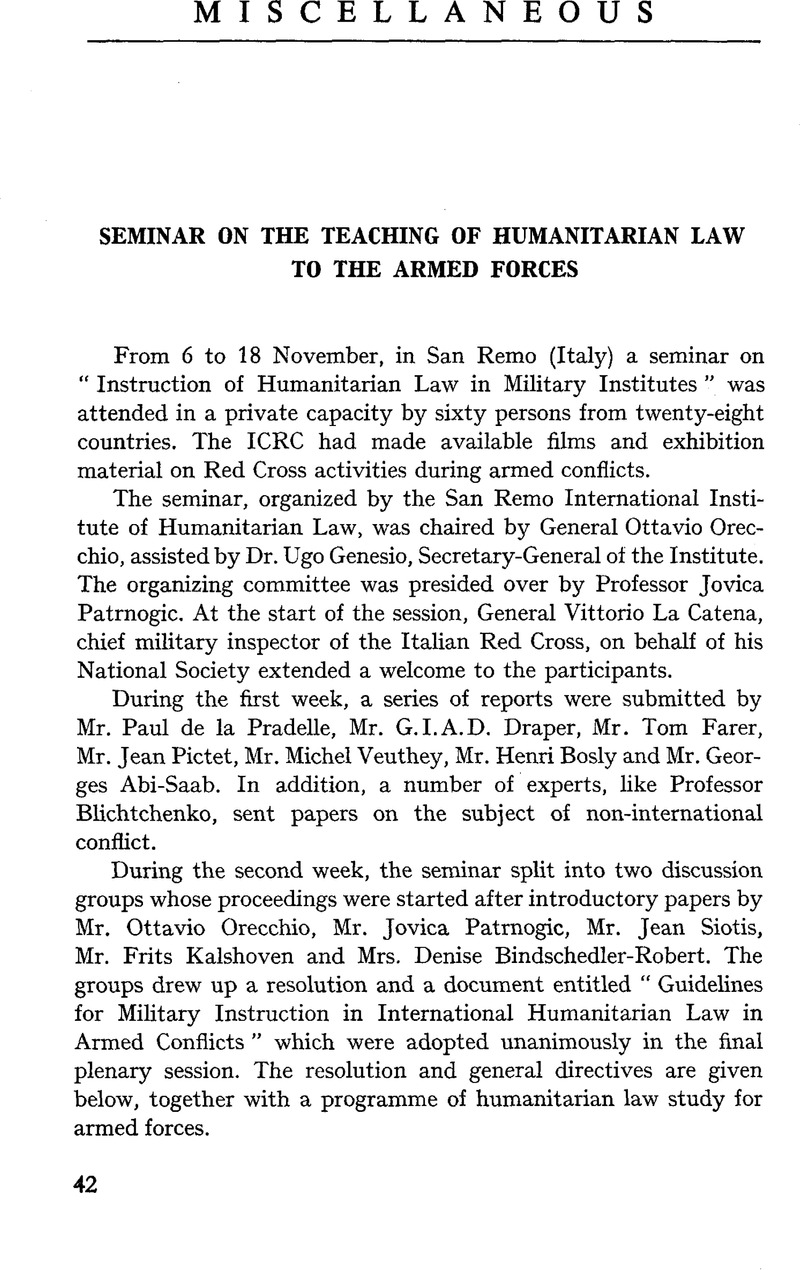No CrossRef data available.
Article contents
Seminar on the Teaching of Humanitarian Law to the Armed Forces
Published online by Cambridge University Press: 13 January 2010
Abstract

- Type
- Miscellaneous
- Information
- International Review of the Red Cross (1961 - 1997) , Volume 13 , Issue 142 , January 1973 , pp. 42 - 51
- Copyright
- Copyright © International Committee of the Red Cross 1973
References
1 This Seminar did not want to submit a fixed programme. The authorities entrusted with organising instruction in humanitarian law for the military or with making changes in courses already being given in the military institutions of their country, can equally validly find guidance in the up-todate teaching given in certain countries on this subject.
2 The International Institute of Humanitarian Law at San Remo possesses certain documents and instruction manuals used by different countries. It is prepared to make these available to all who demand them. It hopes that over and above this the countries whose representatives have taken part in the Seminar from the 6th to the 18th November 1972 and who have not yet sent in their documentation on the subject, would be so kind as to do so.
3 As an indication, the Seminar considers that this course could usefully take place over about 20 hours. For reserve officers the length could be reduced to about 6 hours.
4 In the view of the members of the Seminar, this introductory first part calls for no more than a brief exposeé.
5 Among these topical questions, the Seminar mentions the measures designed to elaborate the common Article 3 in all that concerns the protection of the wounded and sick, the security of medical transports, particularly medical aircraft, guerrilla warfare (distinction between combatants and civilian population), humanitarian missions, the protection of the human being in non-international armed conflicts, safety zones, hospital zones and open towns, the precautions of belligerents in respect to the civilian population, the strengthening of sanctions designed to prevent and repress violations of humanitarian law.
6 See note 7 concerning staff officers (p. 45).
7 To perfect their training, the students could usefully participate in international seminars and should have at their disposal instruction material considered necessary (up-to-date legal documentation, reviews, films and slides).
8 By this expression, the Seminar means those who hold -diplomas of establishments on university level and who moreover have received a legal training which has prepared them for advanced study in humanitarian law.




